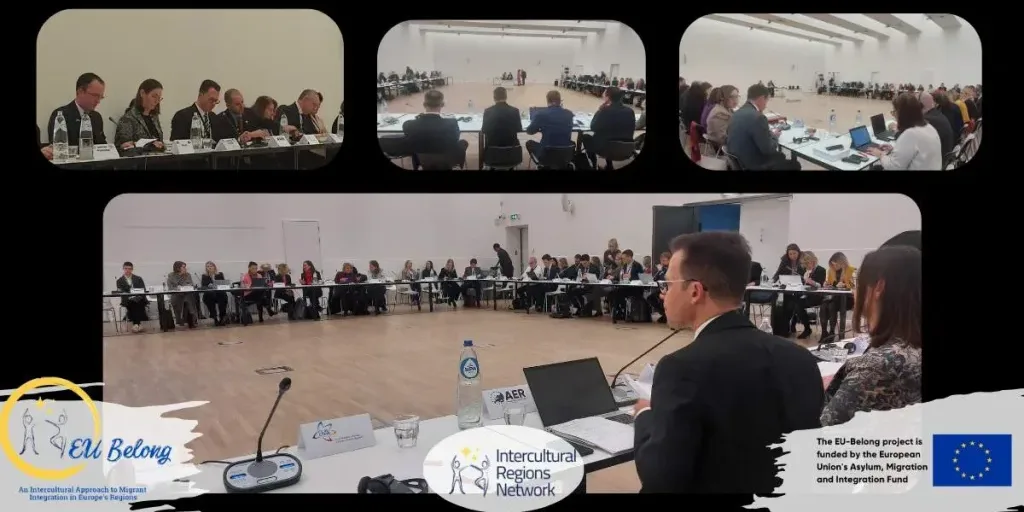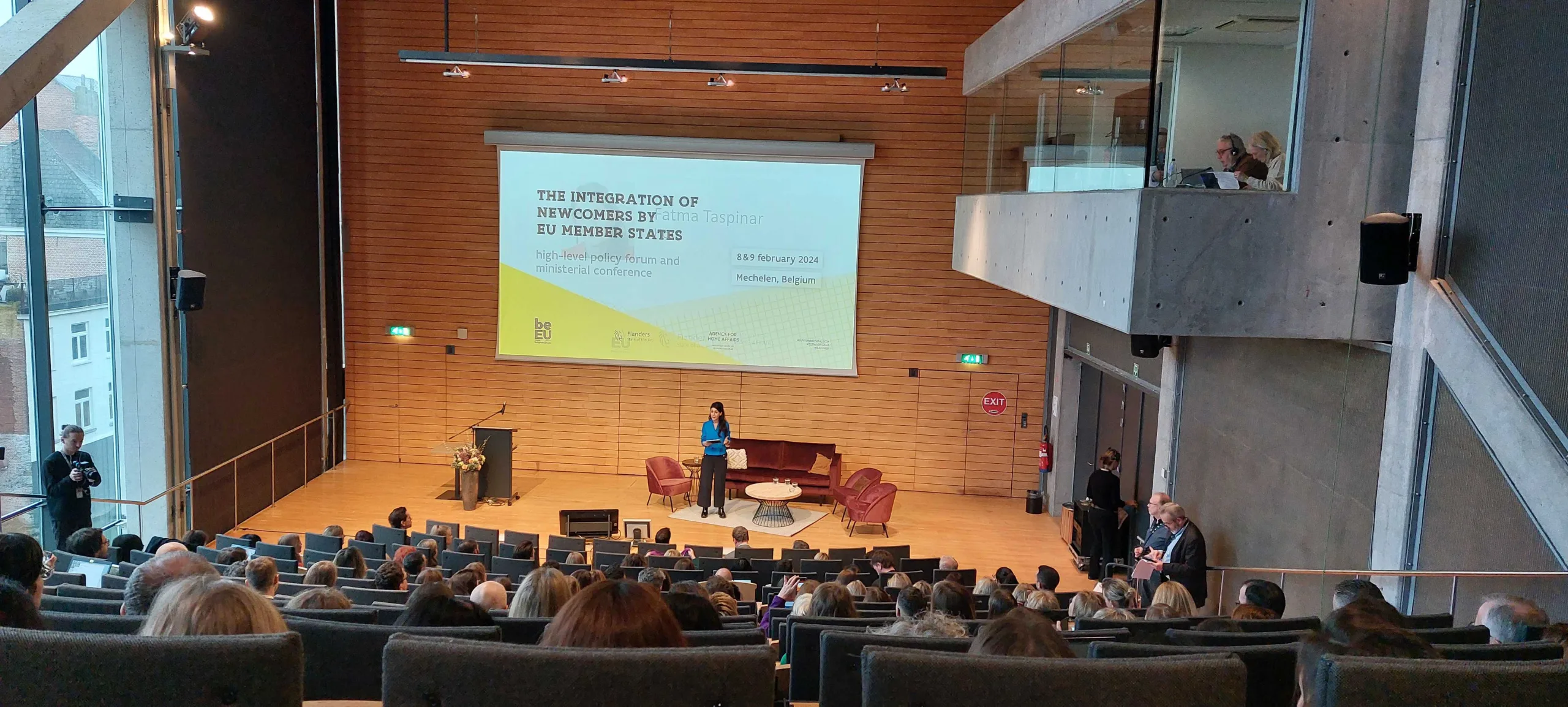 Share this!
Share this!On February 9, AER Secretary General Christian Spahr spoke at the plenary roundtable of the high-level policy forum and ministerial conference on “The Integration of Newcomers by EU Member States” organised by the Government of Flanders in the framework of the Belgian Presidency of the EU Council.
A High-Level Policy Forum and Ministerial Conference on the Integration of Newcomers
Ministers, heads of delegations, global policymakers and experts converged in Mechelen (Belgium) to chart the course for inclusive societies and shape the future of integration policies in Europe and beyond.
Addressing barriers such as language, social support, and prejudice, the conference explored strategies for labor market inclusion, leveraging language learning, and fostering social cohesion.
Emphasising integration as essential within the new Pact on Migration and Asylum, the EU aims to revitalise economies by recognising migrants’ skills and qualifications, supported by the Action Plan on Integration and Inclusion 2021-2027, facilitating funding, capacity-building, and stakeholder collaboration.

EU-Belong: An Intercultural Approach to Migrants’ Integration
This was an excellent opportunity to showcase EU-Belong, an ongoing project funded by the AMIF and led by the AER in partnership with 10 European regional authorities. In line with the roundtable’s topic, EU-Belong aims to improve migrants’ socioeconomic inclusion and sense of belonging at the regional and local levels across Europe. These are just two inspiring examples from EU-Belong project partners:
- County Donegal, Ireland: Collaborative policy-making has led to the development of a Black and Minority Ethnic inclusion strategy. By involving migrants and the local community, County Donegal promotes positive interactions and inclusive growth.
- Timis County, Romania: Through collaboration between regional authorities, employers, and educational institutions, Timis County has implemented a Vocational Counselling Training initiative. Tailored programs align migrant skills with local job market demands, fostering economic integration.
These initiatives highlight the power of collective commitment and collaboration in building inclusive communities across Europe. In the framework of EU-Belong, the innovative intercultural approach has been used as a strategic tool for more cohesive, innovative, and resilient societies. The approach involves knowledge transfer clusters that enable peer learning around common challenges related to housing, education, labour, and health.
Resources to get started on intercultural policymaking
Policymakers and practicioners interested in developing intercultural strategies for different policy areas may find information overwhelming and wonder how to turn this into actionable knowledge and where to start. The EU-Belong resources to get started on intercultural policymaking will provide useful entry points:
Structure and Methodology for Multi-Stakeholder Learning Labs: This tool helps organize regional events to enhance key players’ integration strategy competencies. Participants exchange ideas with stakeholders involved in co-designing activities.
Intercultural Integration Self-Assessment Questionnaire: evaluates migrant integration in areas such as labor market mobility, education, and anti-discrimination. It was created by the Region of Catalonia to help regions evaluate their intercultural integration capabilities.
Peer-Review of European Replicable Good Practices: The AER reviewed successful intercultural integration strategies at the regional level, selecting 10 good practices. The practices promote equality, non-discrimination, and meaningful interaction, and will contribute to the European Commission’s work on improving evidence and data on integration at the local and regional level.
Building Intercultural Competences: A Handbook for Regions and Stakeholders: This handbook serves as a toolkit for public authorities and personnel working in local services and intercultural specialists. It covers the intercultural approach to integration and provides examples of practices and key recommendations for capacity-building activities.
Multi-stakeholder model framework and Toolkit for Regional Intercultural Integration Strategies: Regions play a key role in creating inclusive societies. The toolkit for intercultural integration strategies at the regional level helps practitioners and policymakers in migration, diversity, and inclusion to develop adaptable integration strategies.
You don’t need to do this on your own: join our peer learning activities!
The AER and Catalonia are facilitating peer learning and cooperation on using an intercultural approach in sectoral policies through the EU-Belong Transfer Clusters. To learn more about implementing interculturalism across policy areas through multistakeholder collaboration and co-design, or to stay informed about EU-Belong’s activities, such as webinars and the development of pilots, register to the EU-Belong Newsletter.
If you enjoyed reading about this event, be sure to join us on 19 April in Mechelen, Belgium for the conference Local Government Approaches to Diversity organised by the Flemish government.
EU-Belong is a 3-year project run by the Assembly of European Regions (AER) and 12 partners, and co-funded by the AMIF Programme of the European Union.
This article was written by Nicola Miceli, who did an internship on Policy & Knowledge Transfer at the AER Secretariat from January 2024 to June 2024.
Photo by Giulia May on Unsplash
